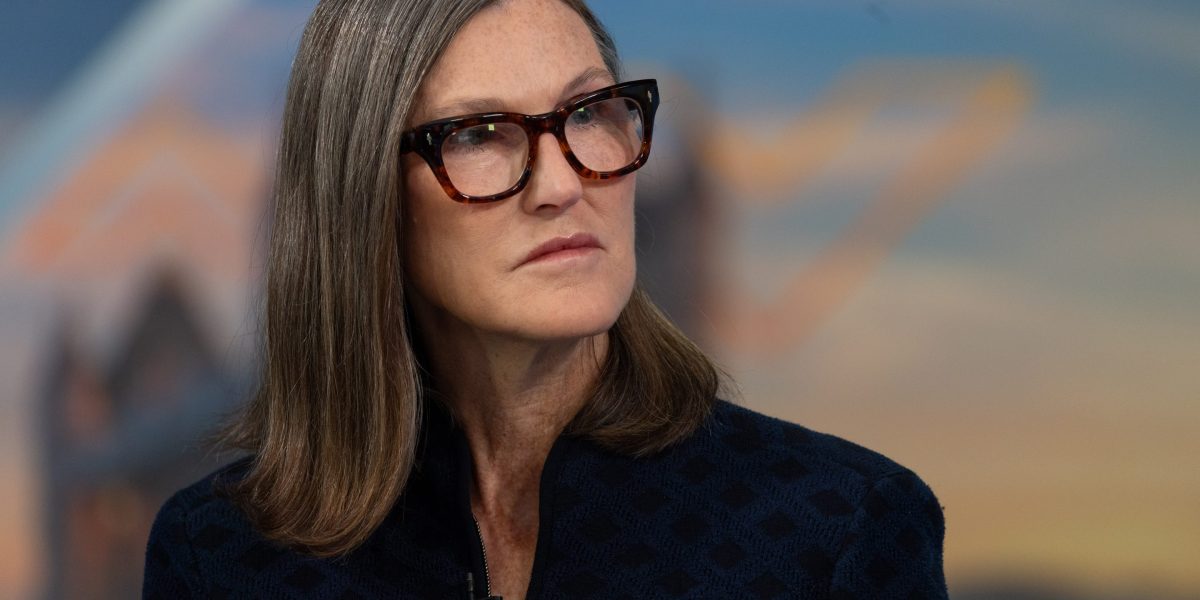
‘Sad, if not damning’: Cathie Wood blasts the proxy firms who say Elon Musk’s $1 trillion pay package is just too rich
Investor Cathie Wood, a long-time Tesla bull known for first investing in the company a decade ago at $13 per share, condemned the growing resistance to Tesla CEO Elon Musk’s potential $1 trillion pay package. Over the weekend, the ARK Invest CEO suggested the financial system that’s enabling the pushback against it is the one with the problem, not the company that wants to make the world’s richest man richer by such a magnitude.
Wood said in a Sunday post on X that it was “sad if not damning” that proxy advisory firms, which make recommendations for how shareholders should vote during companies’ annual meetings, have so much influence. Wood’s comments come after two of the most important proxy firms, Institutional Shareholder Services (ISS) and Glass-Lewis, urged shareholders to reject during Tesla’s annual meeting on Nov. 6 the giant pay package that would give the world’s richest man 29% of the company, up from about 13% now.
Wood particularly criticized the relationship between these proxy firms and index funds, which have an outsized influence over voting because of the large number of shares they control for their investors. Each shareholder gets a certain number of votes based on how many shares they own. Yet, large institutional investors, including index funds, control massive amounts of shares held by their investors, which gives them sway over voting.
“Index funds do no fundamental research, yet dominate institutional voting. Index-based investing is a form of socialism. Our investment system is broken,” she added.
While Wood claims index funds don’t do research, their parent companies absolutely do. The three largest index funds in the world are managed by Vanguard, State Street, and BlackRock, and all three do extensive research for proxy voting decisions and have their own proxy voting guidelines that they publish. Also, those three funds hold over $2 trillion tracking the S&P 500 index and represent the vast majority of retail traders invested in the stock market. While index funds don’t do research to pick stocks, they utilize their research base for voting decisions.
Both proxy firms recommended shareholders vote against Musk’s pay package partly because it dilutes existing investors’ shares and gives Tesla’s highly compensated board too much flexibility when it comes to the goals Musk has to meet to get the full payout, which is about equal to the company’s total market cap.
In another series of posts, Wood added that ISS and Glass Lewis don’t see the potential in Tesla that ARK Invest does and seemingly suggested index funds should be stripped of their voting power. ARK Invest’s flagship ARK Innovation ETF’s largest holding is Tesla, which makes up about 12% of its $8 billion portfolio.
“I believe that history will decide that Glass Lewis and ISS have been menaces to innovation, enabling passive investors who care about ‘tracking errors’ to their indexes but do not care about much else,” Wood wrote in a post referring to how closely index funds track indexes such as the S&P 500.
Russell Rhoads, a clinical associate professor of financial management at Indiana University, said while investors in an active fund know its management may push for changes to a company if it is struggling, the same isn’t true for passive investors who put their money into index funds.
“In general, if I put money into a fund, that’s supposed to mirror the index, that is a passive investment,” he said. “I’m just investing in the market and not trying to influence anything what any other companies are doing business wise.”
Tesla, for its part, said in a Monday statement that the proxy firms aren’t considering the previous 2018 pay package approved by shareholders on two different occasions that allocated $56 billion to Musk over 10 years. Both ISS and Glass Lewis also recommended voters reject the 2018 pay package.
“Glass Lewis’s one-size-fits-all checklists undermine shareholders’ interests, including by opposing proposals designed to build long-term value at Tesla,” the statement read.
When reached for comment, representatives from Glass Lewis and ISS directed Fortune to their respective proxy papers on Tesla.
Prior to the proxy firms’ reports, the SOC Investment Group, which works with pension funds sponsored by major unions such as the International Brotherhood of Teamsters, as well as several parties with an interest in Tesla including state financial officers, signed a letter with the Securities and Exchange Commission urging shareholders to vote no on Musk’s pay package earlier this month.
If Musk’s pay is approved and the three board members are reelected, “this year may be one of the last times that public shareholders have a meaningful voice in the Company and its leadership given the level of dilution that is likely to take place,” the letter argued.
Tejal Patel, the executive director of Tesla shareholder group SOC Investment Group, said despite the company claiming Musk needs more incentive to stay engaged with Tesla, Musk’s incentives should already align with the company whose shares represent the bulk of his $455 billion net worth. SOC has been vocally critical of Tesla and its corporate governance for multiple Musk pay packages on multiple grounds.
“We just don’t believe that these pay packages are going to really incentivize Mr. Musk to stay at Tesla, nor to be focused on Tesla over his other business endeavors,” Patel told Fortune.
Still, Wood said she was confident Musk’s pay package would pass, in part because of the support of retail investors, which hold about 40% of Tesla’s voting shares.
“Although the proxy firm ISS has recommended against the package, retail investors are likely to dominate the vote once again. America!”
[This report has been updated to include a paragraph providing additional context on the extent of the major index funds’ research activities.]
First Appeared on
Source link






